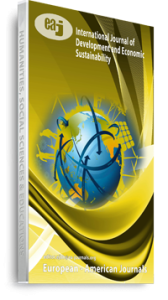Globalization is said to be a hallmark for modern economic growth and development. Since 1970, the volume of world trade has grown by around 7% yearly. The Nigerian industrial sector after experiencing boom in the first two decades after Nigeria’s independence, has suffered from low productivity afterwards. Therefore, this study examined the impact of globalization on Nigeria industrial sector performance from 1986 – 2017. The study utilized secondary data from the Central Bank Statistical Bulletin (CBN), and National Bureau of Statistics (NBS). The data were analyzed using Ordinary Least Squares (OLS), Error Correction Model, ADF Unit root test, Johansen Co-integration test, Cholesky variance decomposition test. The findings of this study show that “free-trade” which came as a result of globalization has a not impacted Nigeria industrial output enough to trigger economic growth and also, that Nigeria depends so much on imported products which have made the industrial sector weak and unable to compete with her foreign counterparts. The study also revealed that globalization has led to the stagnation of Nigeria’s Manufacturing index. This implies that the cost of globalization for Nigeria have outweighed its benefits, hence; the study concluded that globalization has done more harm than good to Nigerian economy. The study recommends that Nigeria should put in place an industrial policy which should create enabling business environment within the country by providing incentives to manufacturers, ensuring regular and uninterrupted power supply as well as promoting agriculture.
Keywords: Globalization, Nigeria economy, economic policy. industrialization, industrial sector performance

